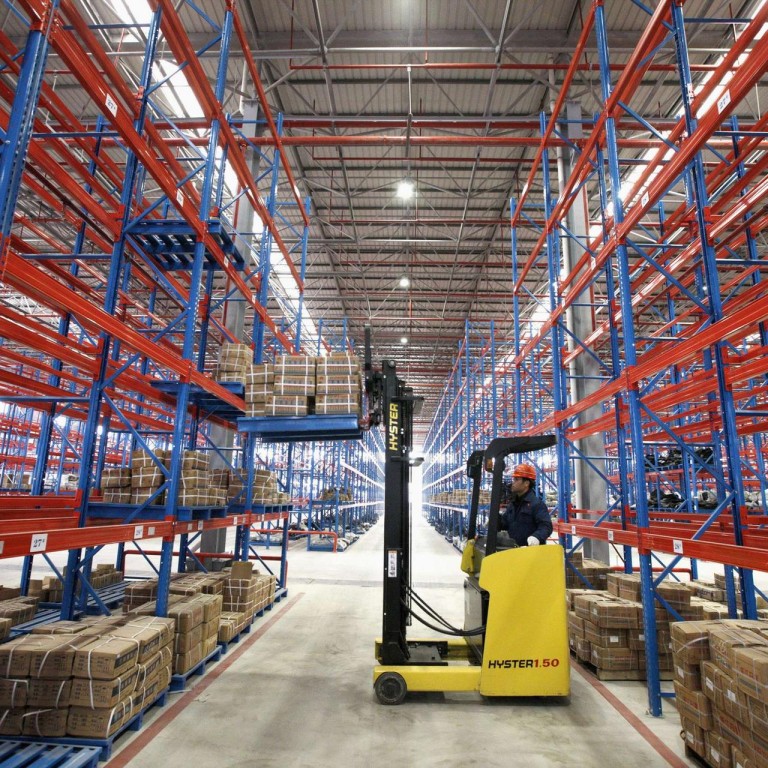
China logistics company helps small businesses with hard-to-get loans
Small businesses face a difficult financing environment, but Wuzhou International helps its tenants borrow by hooking them up with banks
The People's Bank of China's interest rate cut in November last year has not made it easier for small enterprises to borrow money, with rates on some small loans as high as 20 percentage points above the benchmark, according to a logistics firm that is connecting customers with good credit to banks or small loan companies for financing.
In the latest move, the central bank cut the reserve requirement ratio for all financial institutions by 0.5 percentage point last Thursday, hoping to boost lending. The ratio of city and rural commercial banks was cut by an extra 0.5 percentage point to support small and micro-sized enterprises and the agricultural sector.
Amid the difficult loan environment, Wuzhou International, a developer of trade centres and logistics space, has been hooking its tenants up with banks or small loan companies - and providing tenants' business records and logistics data as a credit reference - to make it easier for them to borrow money.
But the interest rates for such small loans were not much lower than those in private lending.
"Generally speaking, if the duration of the loan is half a year, the interest rate would be the benchmark rate plus 20 percentage points," said Wu Xiaowu, an executive director of Wuzhou.
Interest rates at some peer-to-peer lending platforms, one type of private lending, could be as high as 40 per cent, according to reports.
"It would be impossible for small firms to borrow at the benchmark rate. It's pretty good if they could obtain any loan. When an individual small firm talks to [lenders], it won't have bargaining power," said Wu, explaining the reason for the abnormally high interest rate on small loans.
"If I could line up 10 small firms and talk to the bank as a group, the bank might become more interested."
Wuzhou has lined up loans totalling 100 million yuan (HK$124 million) for tenants at an industrial expo mall in Wuxi which began operation in 2009. They were all short-term loans to ease cash-flow problems, with each loan amounting to 200,000 to 300,000 yuan.
Wuzhou is not a licensed lender, but Wu said the company was considering obtaining the necessary financial service licences as there was huge potential in this business.
"Even though the interest rate was cut, small firms are still unable to obtain cheap money," she said. "Most of the benefits of the rate cut would probably go to the state-owned enterprises."
Other e-commerce firms are also providing similar services.
Alibaba Group Holding's wholesale trading website has partnered with seven banks on the mainland. The banks provide unsecured loans to participants in Alibaba's platform based on their trade data. According to Alibaba, annual interest rates last year ranged from 8 per cent to 18 per cent.
Home appliance seller Haier Group has also cooperated with Citic Bank and Pingan Bank to offer supply-chain finance. Under the arrangement, the banks can lend to home appliance dealers operating on Haier's business-to-business platform.
Mainland courier firm SF Express has also entered the supply-chain finance business, including providing loans to customers that have goods stored at its warehouses.
